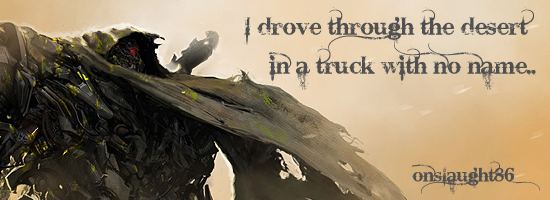I am pretty sure the guys writing the cop shows are not afraid of change for it being new and different, but they are hostile to the internet exactly for the reasons you describe as the internet's virtues. At the end of the day, the net is taking bread from the table of the writers. They are sensibley annoyed at this. Of course, the ignorant audience members are another story.People who fear change to that extent should be spayed for being useless to the gene pool. In all seriousness, though, I agree wholeheartedly, and not just because I work in customer service.
News that is covered is determined largely by what sells. When I was working as a reporter, I had more than one editor tell me "do not bother" on the basis that the story would not bring in readers. At the local level, cutesy pictures of kids sell more than serious stories. Missing white girls are another good example. Some jack-ass co-ed going missing in the Bahamas is a more saleable story than....genocide in Darfur. Not only is the story easier to market, it is cheaper. And, lets face it, if you were a reporter, what assignment would you rather get (and what would you charge more for), a working vacation (assuming you are even sent anywhere for the dead co-ed story), or a stint in a *very* rough part of the world?This is also a statement against unavoidable media bias and snap-frozen opinions: At the end of the day, some individuals are governing what is and isn't pushed as news, and I do not believe those individuals would judge the importance of said news in a fair and reasonable fashion. After all, people have to 'buy' the paper, they need a catchy headline.
But, the book only consists of what is on the page. The readers still only gets what the author gives them. Even filling in gaps, the reader only fills in the gaps regarding what the book is about. (I am thinking of Huntington's "Clash of Civilizations", which has some real distortions in it that are only apparent if one has read other material on the subject.)It's not like a book, which by sheer stimulation of the imagination crosses the barrier and becomes personal. By removing the specifics (To paraphrase Waking Life, a man walks into a bar and sees a dwarf), you fill the gaps in yourself, and thus are limited only by your own consciousness, not by any budget/marketing team/timeslot/any other factor of a regular TV show that makes it less than entertaining.
I can see the virtue of self-selection. I am not a fan of the public square because there are too many village idiots congregating there. But, I am not a fan of the extreme selection that many hobbies now require. I should not have to have tremendous amounts of information on hand to watch a movie or TV show. I want something that is more or less self-contained and complete.The future, boys and girls, lies in Everything On Demand. I'm currently experiencing what I feel to be the start of a new wave of crossover between communication technology and entertainment, because when I do end up watching TV, I like to look up what I'm watching on my pocket PC. Watching a movie while reading its IMDB page and Wikipedia article is a fascinating thing.
Along similar lines, it is a bad business model for producers to assume that level of interest by viewers, as people are less likely to select into something that they have to research.
Dom
-wishes JT were here to argue against the virtues of On-Demand.

